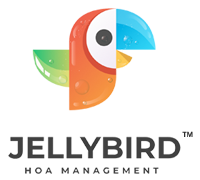While there are currently no specific laws outlining the skills and qualifications that an HOA board member must possess, there are certain qualifications that are often highly encouraged. To discover if your association has certain guidelines about serving on the HOA board, look to the governing documents.
Most association’s governing documents will contain language pertaining to board member qualifications, such as the board member:
- must be a member of the association;
- has no convicted felonies;
- cannot have delinquent assessments or current violations;
- has no relationship with any other serving board member; and
- is not involved in legal issues with the association.
Now that we’ve got qualifications out of the way, let’s focus on skills! Serving on an HOA board requires a wide variety of skills, so we will discuss the skills that will help you lead your community effectively and enhance your experience as a valued community volunteer.
In no particular order, below are five important skills that HOA board members should possess:
Effective Communication
Listening to others goes a long way toward problem solving. To be an effective communicator, you must be able to actively listen to what the other party is saying, ask questions, and respond in a productive manner.
When you strive to understand what another individual is expressing, healthy conflict resolution is often the expected outcome. Serving on your HOA’s board, you will sometimes encounter situations that are complicated or perplexing, where emotions run high – that’s why it’s important that you possess effective communication skills to help find amicable solutions to various issues that may need to be addressed.
Goal Setting
Effective board members understand the importance of proactive planning and goal setting, which are often the most underrated aspects of association management! Goal setting tends to make the difference between spending the majority of your time handling crisis management issues versus being able to make improvements to your association’s infrastructure.
When you serve on the HOA board, it’s important that you plan ahead and anticipate the unexpected in order to keep things running smoothly. The most effective board members are those that are forward-thinking and address possible future concerns in a proactive manner.
Transparency and Knowledge When it Comes to HOA Finances and Budgeting
The ability to keep members satisfied and feeling confident in the board’s capabilities is often tied to financial protection and the transparency surrounding this delicate topic. Homeowners want a board that they can trust with being fully competent to handle the association’s finances. This includes everything from collecting assessments to conducting reserve studies, to daily maintenance and upkeep of the common areas and how HOA money is spent.
By creating an action plan for your association’s finances and carefully constructing (and adhering to) an annual budget, you can increase homeowner satisfaction and give members peace of mind that their money is being managed properly to run the HOA.
If you ever have questions regarding the association’s reserves, budget, or financials, it’s best to seek immediate guidance from a professional management company or your association’s legal counsel.
Finding Balance
It’s reasonable to expect homeowners to follow the rules and regulations of the association. After all, they agreed to them when they moved into the HOA! However, unexpected challenges may sometimes present themselves. Think back to the pandemic in 2020; most people’s lives were dramatically and unexpectedly altered. From unexpected job loss to major health scares, life changed overnight! When overwhelming situations arise and compound stress for the vast majority of homeowners, it’s not unreasonable for the board to show some flexibility and make decisions in an empathetic manner, as long as it’s done in a uniform and consistent manner for all members.
By demonstrating your understanding in these types of situations, the board can further build trust with homeowners and seek alternative solutions when collaborating with homeowners. Hopefully, we won’t face another pandemic or drastic life-changing event like the one we did in 2020, but there could be other extenuating circumstances that homeowners face.
When this happens, it’s best that the board be neighborly and meet with the affected homeowners to find an agreeable resolution. When it comes to serving the public, one size does not always fit all.
If you are serving on your HOA’s board, you should have a heart for your community while still acting in the association’s best interests.
Education-Minded
Association laws are always changing, responding to community needs is a top priority, liability issues are always a concern, interpersonal communication is essential to working effectively with homeowners and other board members … these are just a few of the concerns that impact a community. In short, serving on the HOA board requires continuous training and resources!
Fortunately, many opportunities to seek out resources and education pertaining to association management are available today, often from the comfort of your own home! If you’re not sure what steps you need to take to increase your association knowledge, contact your HOA’s legal counsel or management company for advice.
Because HOA board members often come from diverse backgrounds, each bringing a different skill set to the table, you can capitalize on each other’s talents and strengths. By creating a well-balanced team capable of tackling the most challenging association problems, your board can ensure that the HOA runs smoothly and effectively. Contact JellyBird HOA today to receive a free HOA management quote for your community.
Also, visit Boardline Academy for more tips on how to be the best HOA Board Member you can be.

